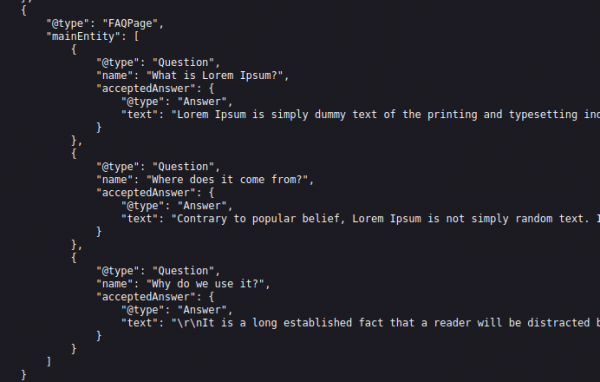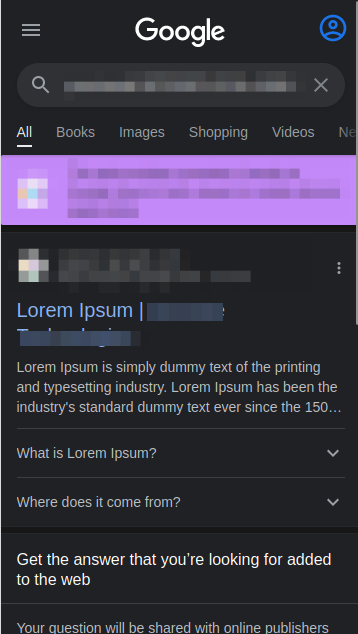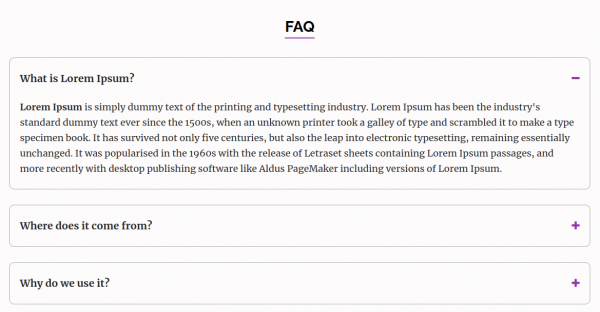Google's New Search Changes: Understanding the Impact on FAQ and How-To Results
Structured data and semantic markup play an important role in search engine optimization (SEO). Through the use of specific HTML tags and options provided by schema.org, websites can communicate information to search engines more efficiently and effectively. Google and other search engines utilize this data to display rich results, providing users with quick answers and additional context without having to click on a link.
Now, Google has announced that there will be significant changes to two popular rich result types: FAQPage and HowTo. Let's understand what these changes mean and how they may impact website owners.
Structured Data, Semantic Markup, and Schema.org

Structured data is a standardized format that helps machines (such as Search Engine Bots) understand the content of a webpage. Semantic markup, a subset of structured data, involves tagging elements with specific terms that have meaning to humans and machines. Combined with guidelines from schema.org, these practices enable search engines to display rich results.
Though search engines like Google accept structured data from websites, they also employ unique mechanisms to interpret the content and assess its authenticity. Even so, they have traditionally relied heavily on Schema.org markup, and website owners have been eager to implement all necessary schemas to ensure their sites rank at the top.
How Google's Handling of FAQ and HowTo Has Changed
In a recent announcement, Google stated that it will reduce the visibility of FAQPage and limit the HowTo rich results desktop.
FAQPage

FAQPage is a Schema.org type used widely by websites to secure rich results in the Search Engine Results Page (SERP). The benefits have been utilized by many website owners, including the creation of modules in Drupal that automatically generate the FAQPage schema type.
Now Google has decided to put a hold on displaying rich results from the FAQPage schema. According to their official announcement says:
Going forward, FAQ (from FAQPage structured data) rich results will only be shown for well-known, authoritative government and health websites. For all other sites, this rich result will no longer be shown regularly. Sites may automatically be considered for this treatment depending on their eligibility.
You should not remove the FAQ schema implementations from your website; Only thing to note is that they will not show in SERP unless your website is a well-known, authoritative government and health website. So if you do not have FAQPage schema implemented, there is no need to invest in implementing that if you focus only on Google.
Note: This announcement is from Google, but other search engines like Bing or Yandex might still use it. SEO is not specific to Google; it encompasses all Search Engines.
HowTo
HowTo is a schema type, not as prominent as FAQPage but still widely used. Google has now stated that they will no longer show the rich results from HowTo on mobile devices. Desktop users will still see the HowTo rich snippets Site owners should note that, as Google does mobile-first indexing, if the HowTo schema is not in your mobile website, Google will not capture that and will not appear on desktop devices.
What Can Be The Reason Behind This?
With the arrival of ChatGPT and other Large Language Models (LLMs), it looks pretty easy to create FAQs and HowTos. It's a matter of inputting a prompt to ChatGPT, and it will do the rest. But if you do not check and validate the content generated by ChatGPT, you will be in trouble. ChatGPT can confidently bluff and often hallucinates, generating total rubbish content.
Google might have detected a sudden rise in FAQs and HowTos on websites, with much of the content possibly hallucinated by ChatGPT. :-D - this is pure speculation, as we never truly know why Google makes these decisions.
Action Items For Website Owners
FAQPage Schema: For those who have already implemented FAQSchema, there is no need to worry; Google may not display your FAQs as rich results, but other search engines might do that. If you are an authoritative Government or Health website, it is high time to implement FAQPage Schema, as your content will get a better chance to get highlighted in Google Search Result Pages.
HowTo Schema: If you are implementing the HowTo schema, even if Google displays it on desktop devices, your mobile version of the website should include it, so that Google can get the schema and show it on desktop devices.
Implementing structured data benefits your website in various ways beyond Google's recognition. It aids in other systems, including accessibility software. Therefore, do not hesitate to implement schema.org whenever possible.

We have implemented structured data for many of our customers, and it has assisted them in ranking better and appearing in the featured snippets and rich results of search engines. We use Drupal to implement digital experience platforms, and Drupal has full support for all Schema.org Types. Modules like Schema.org Blueprints enable us to build Schema.org first websites. If you are a Government or Health sector organization using Drupal, we are happy to help you implement a FAQPage system like what we have implemented for our website.
Feel free to reach out if you would like to implement schema.org structured data in your Drupal website. We're here to help!



